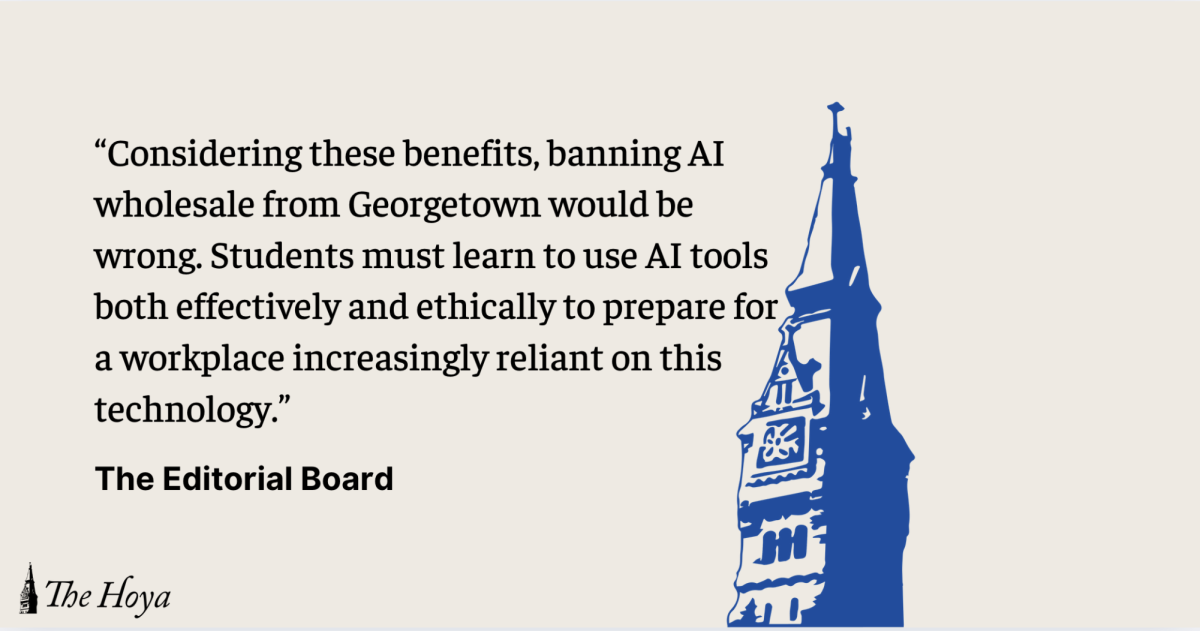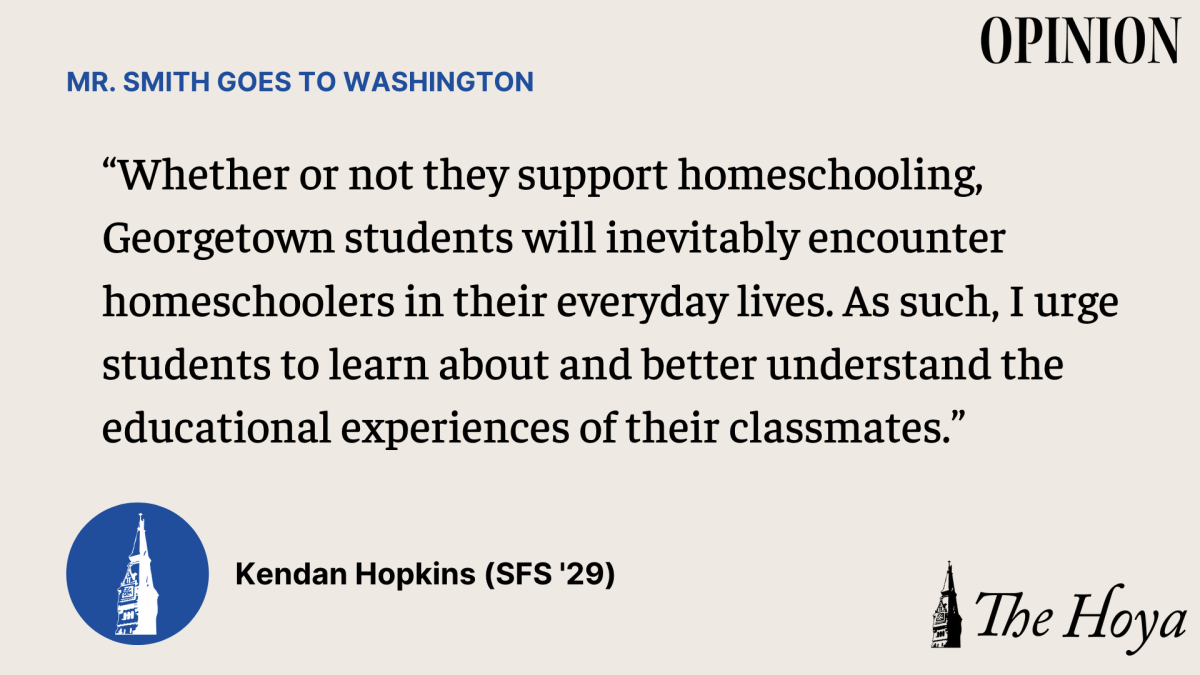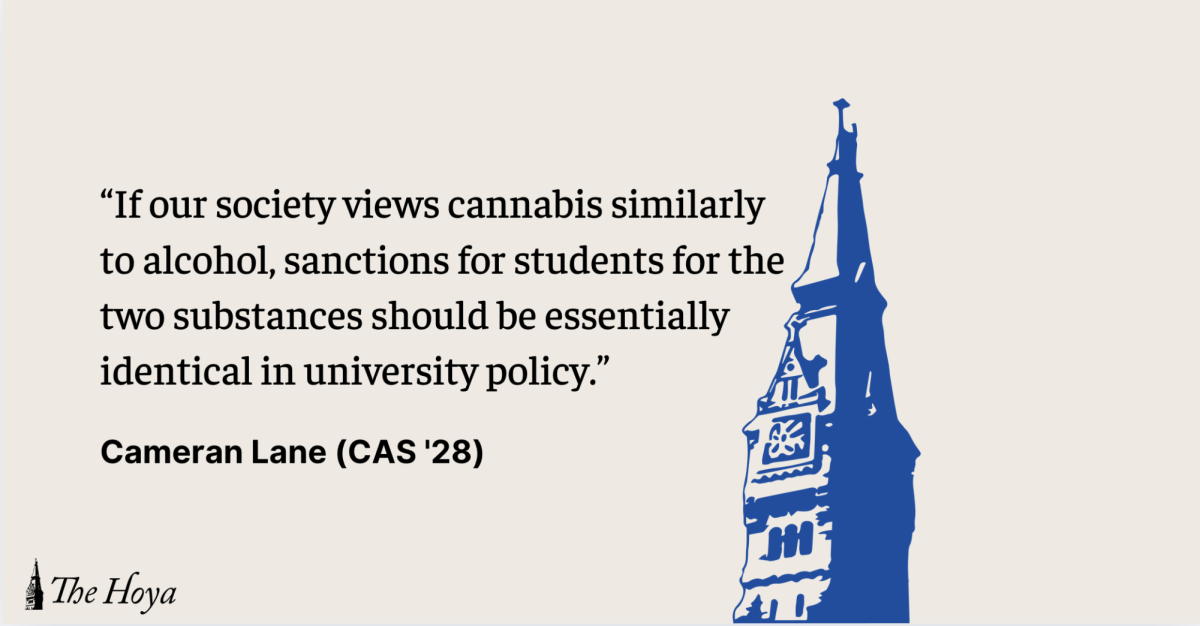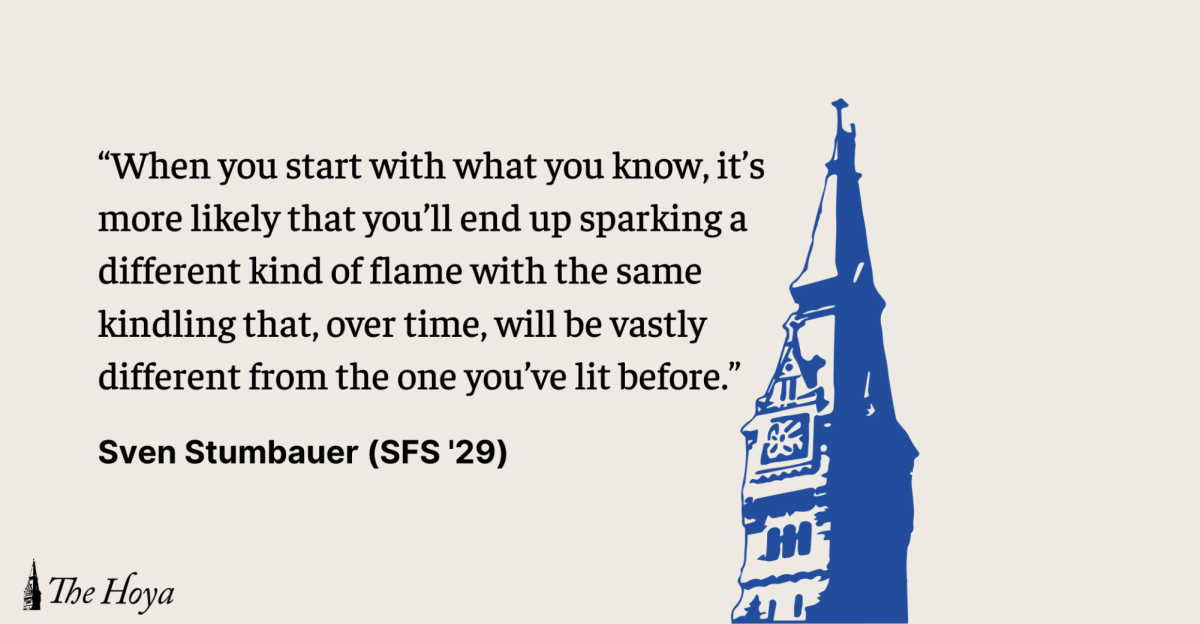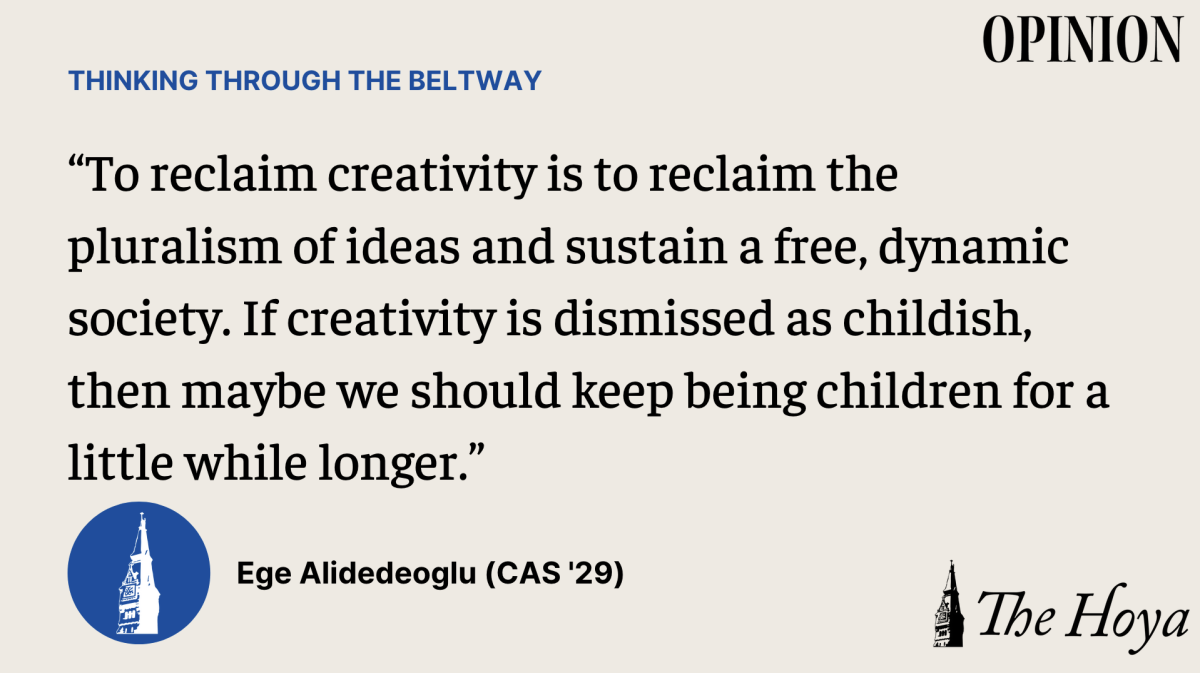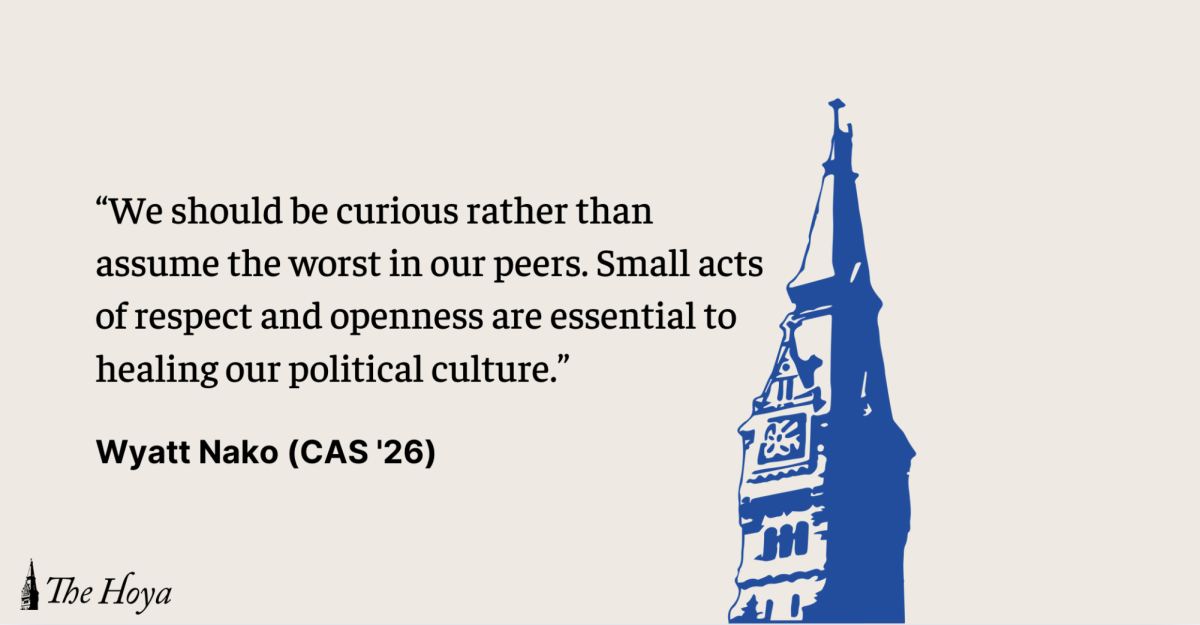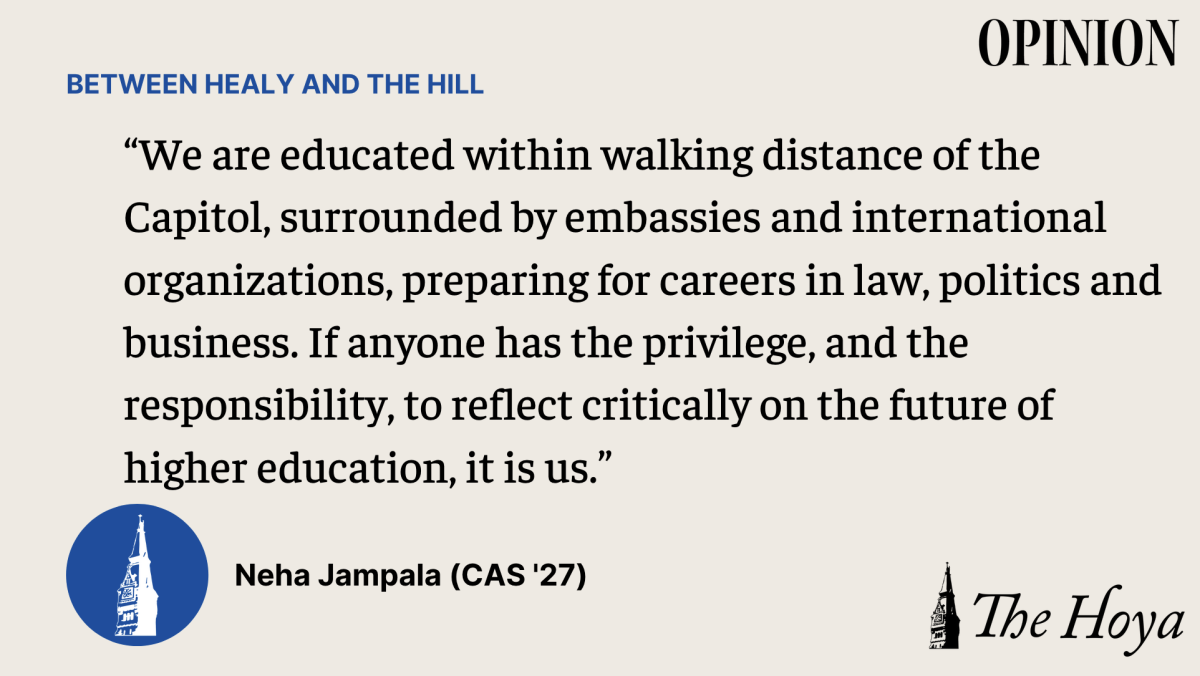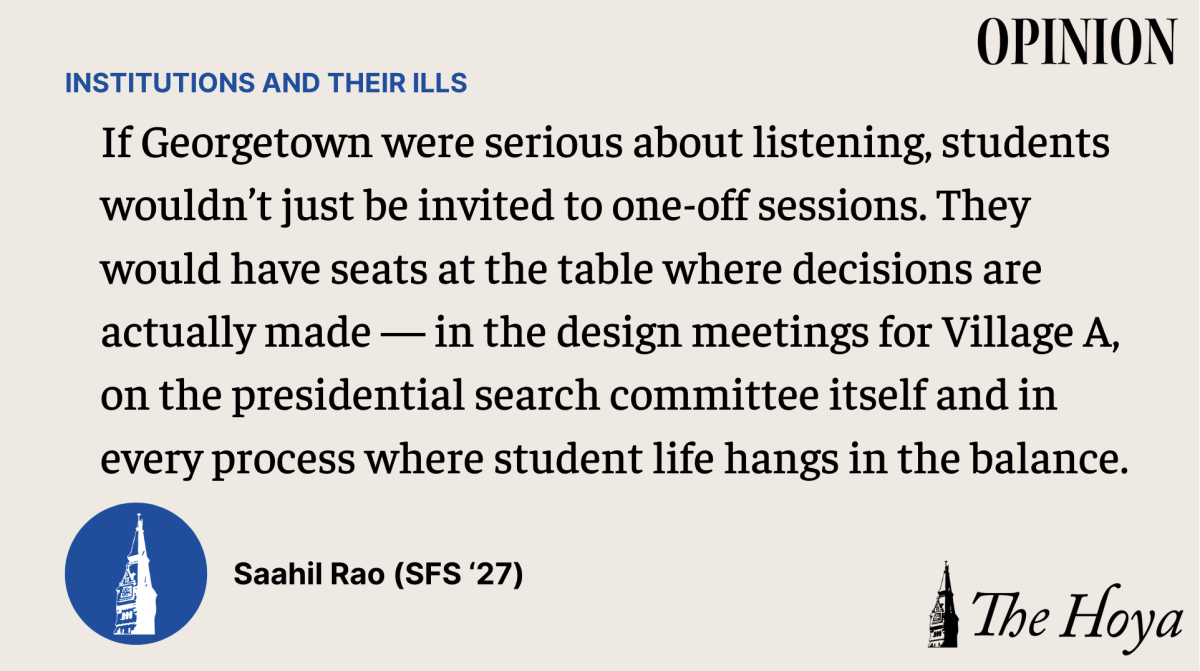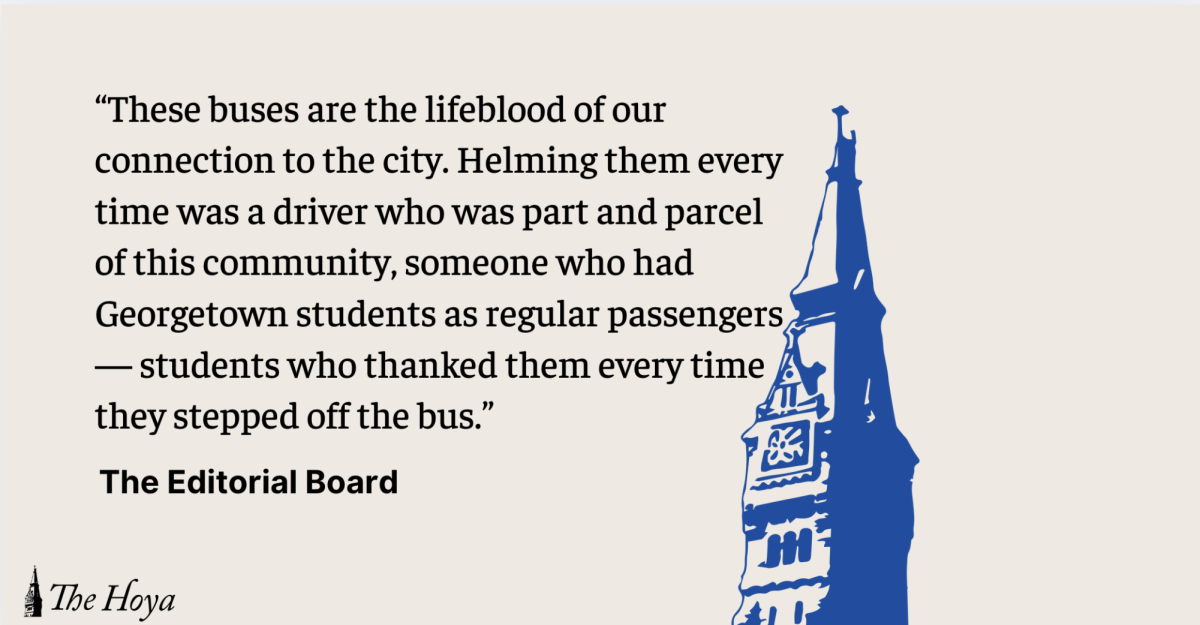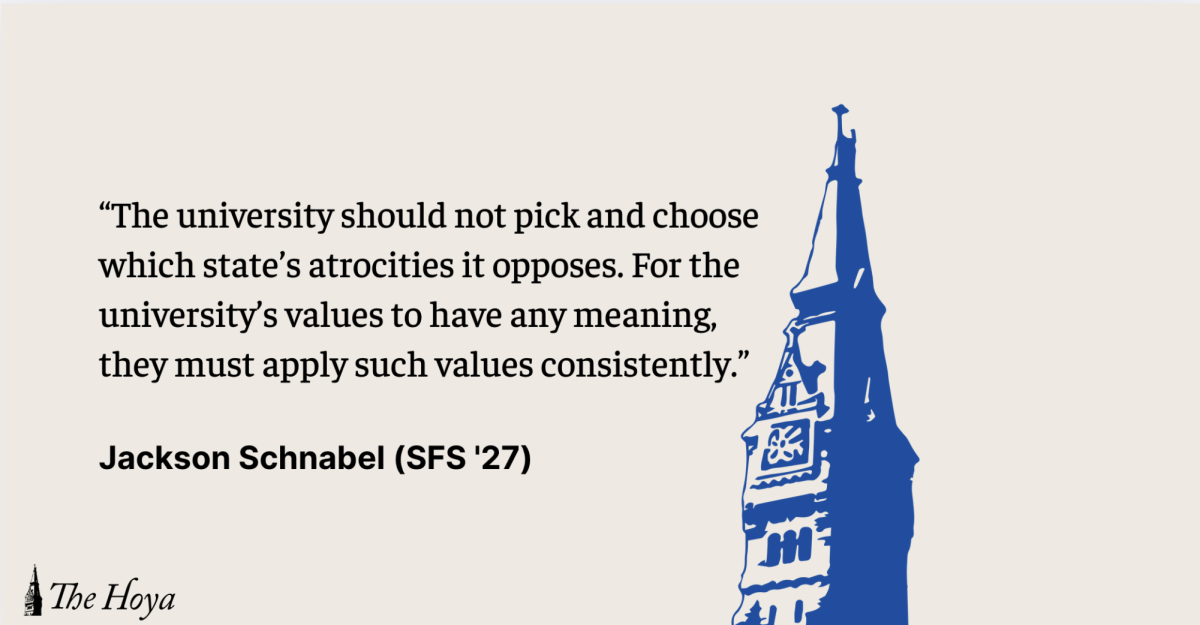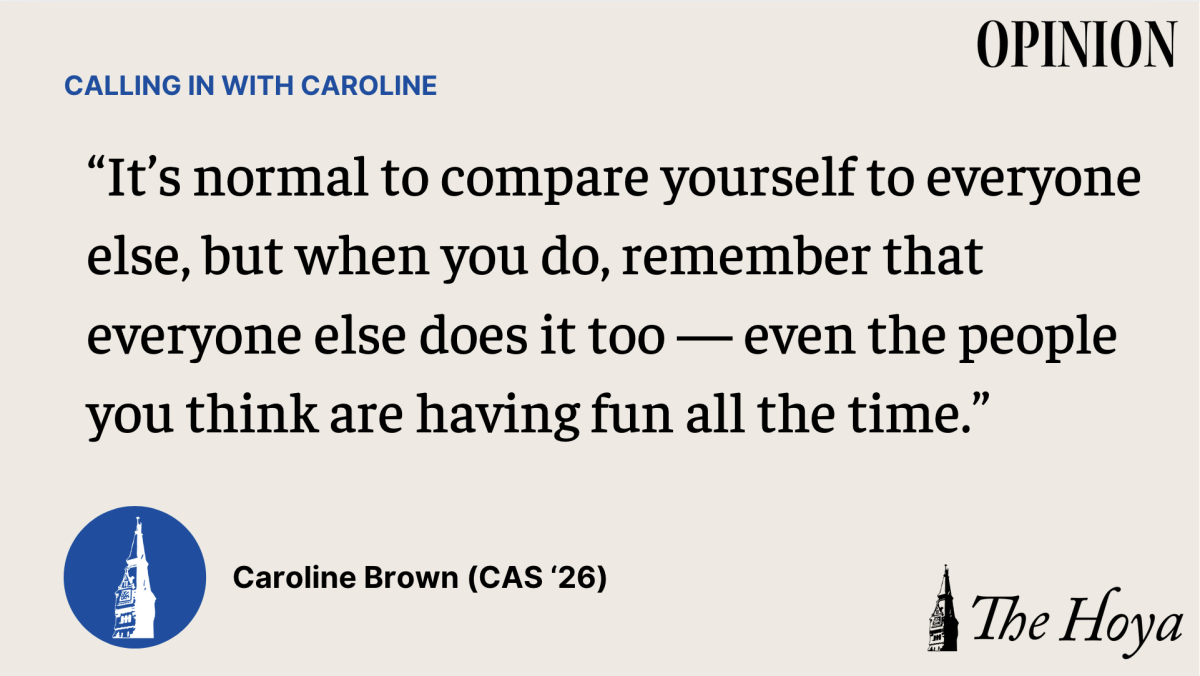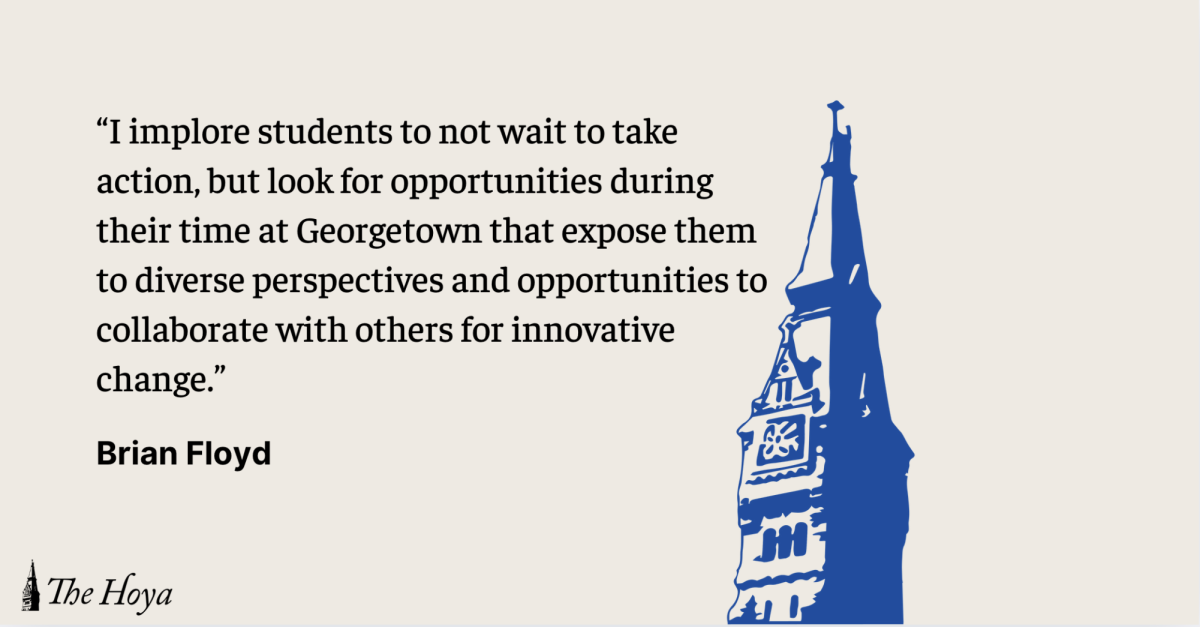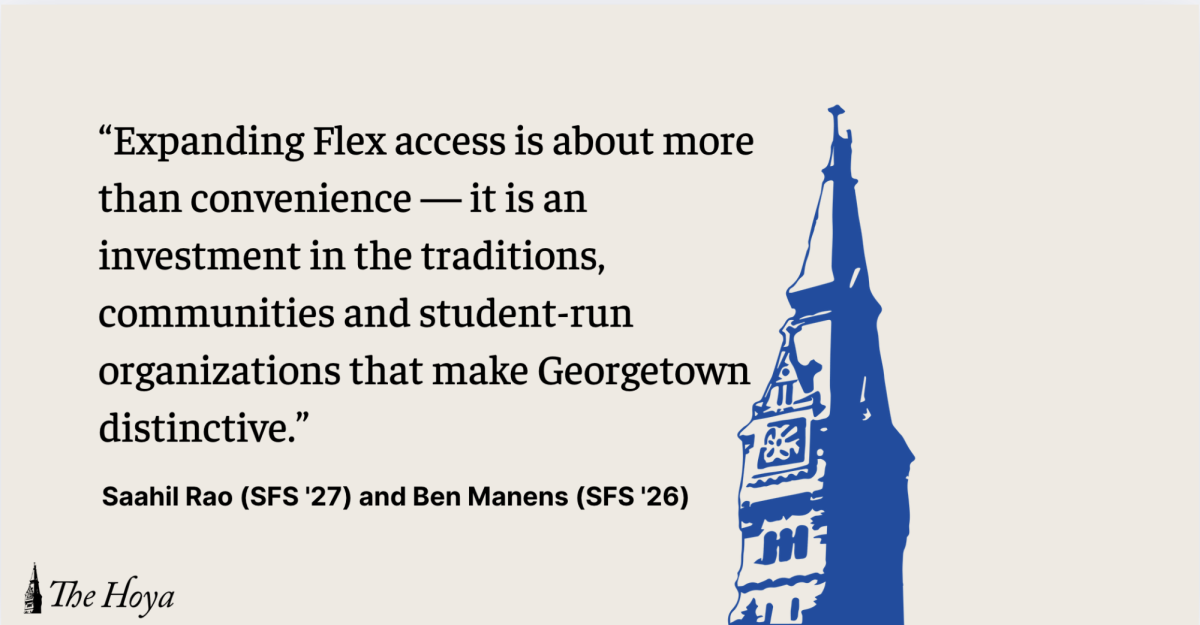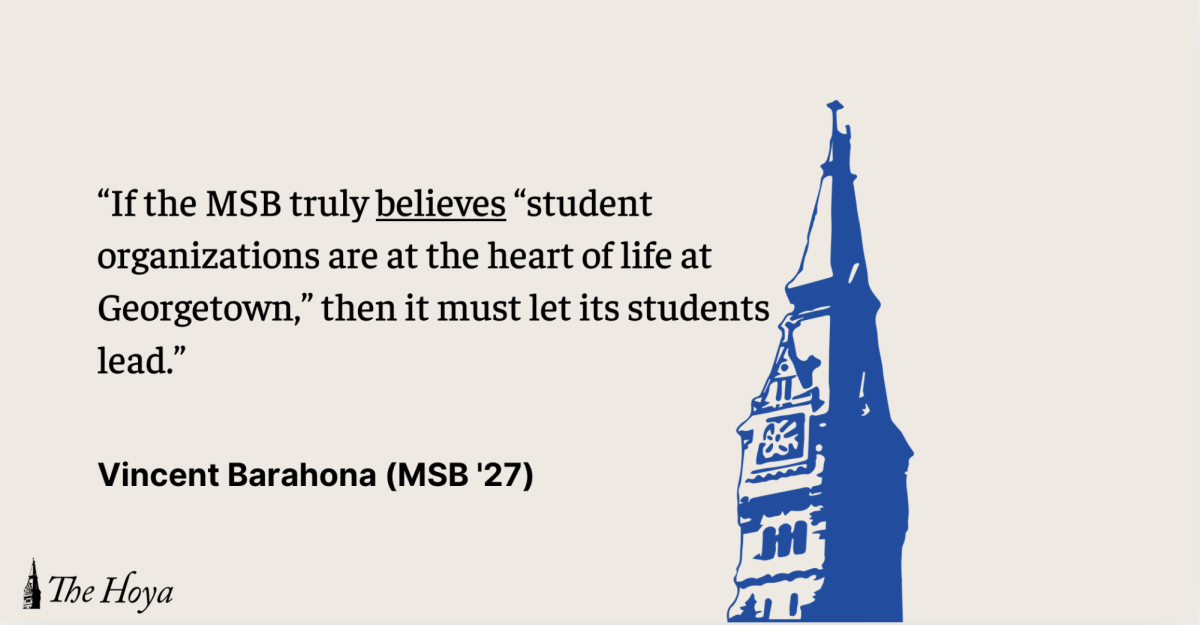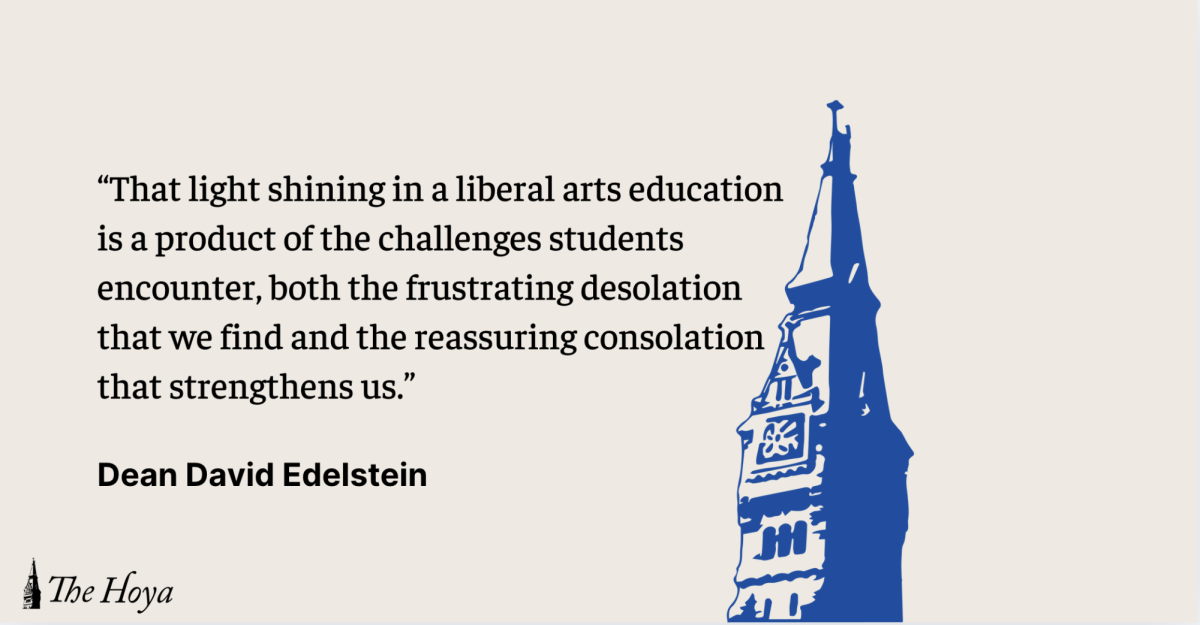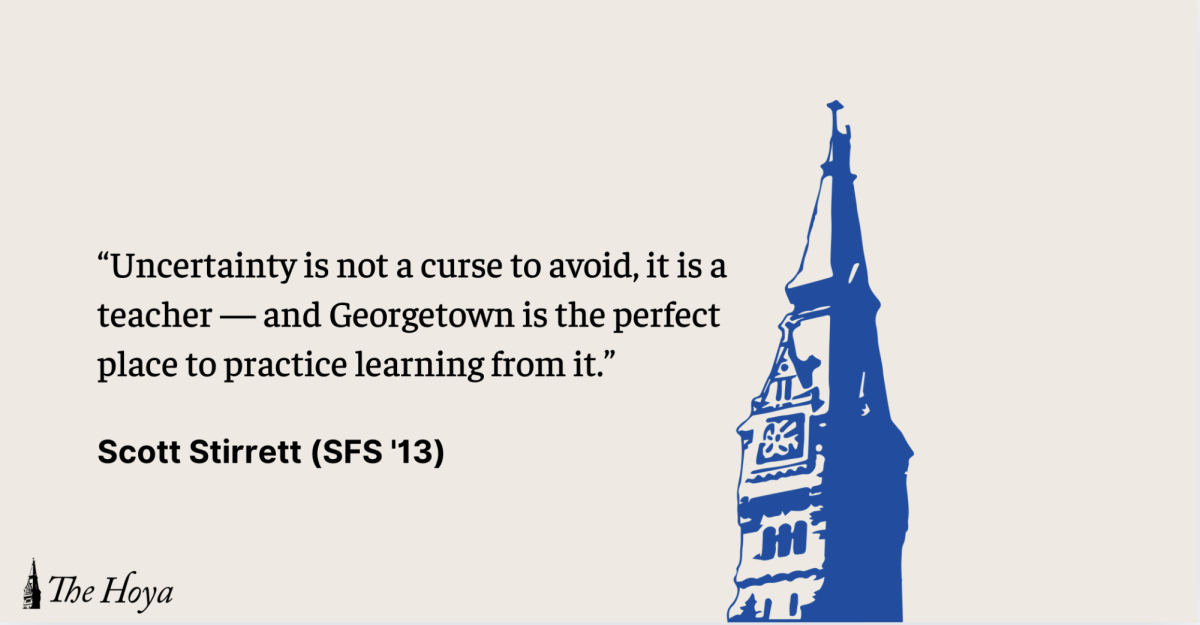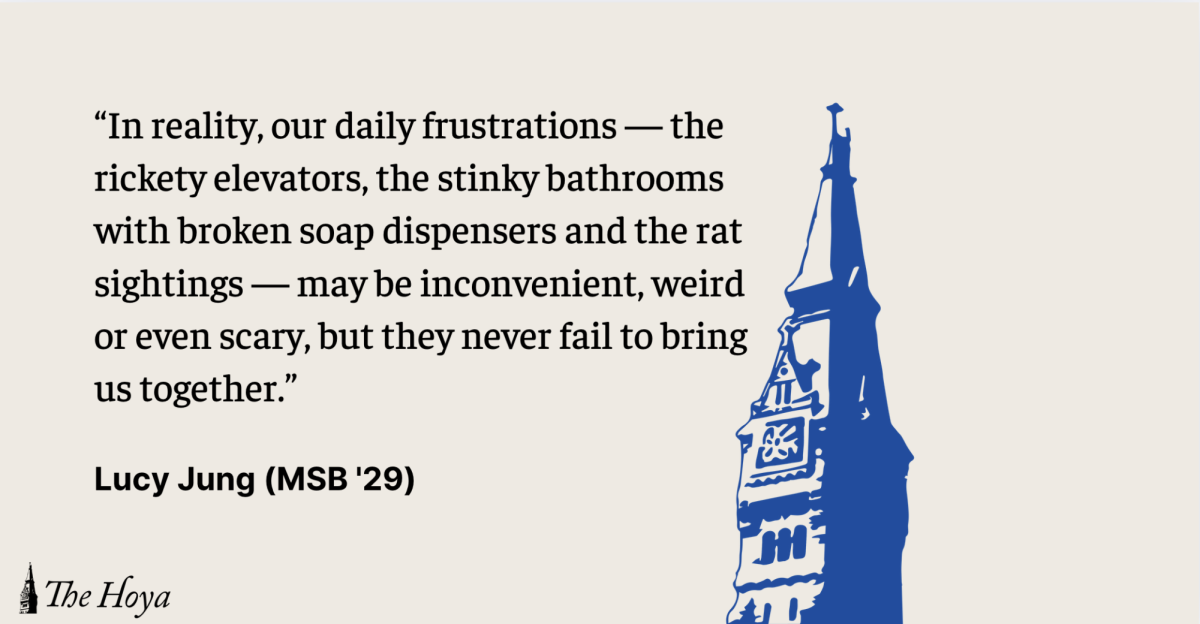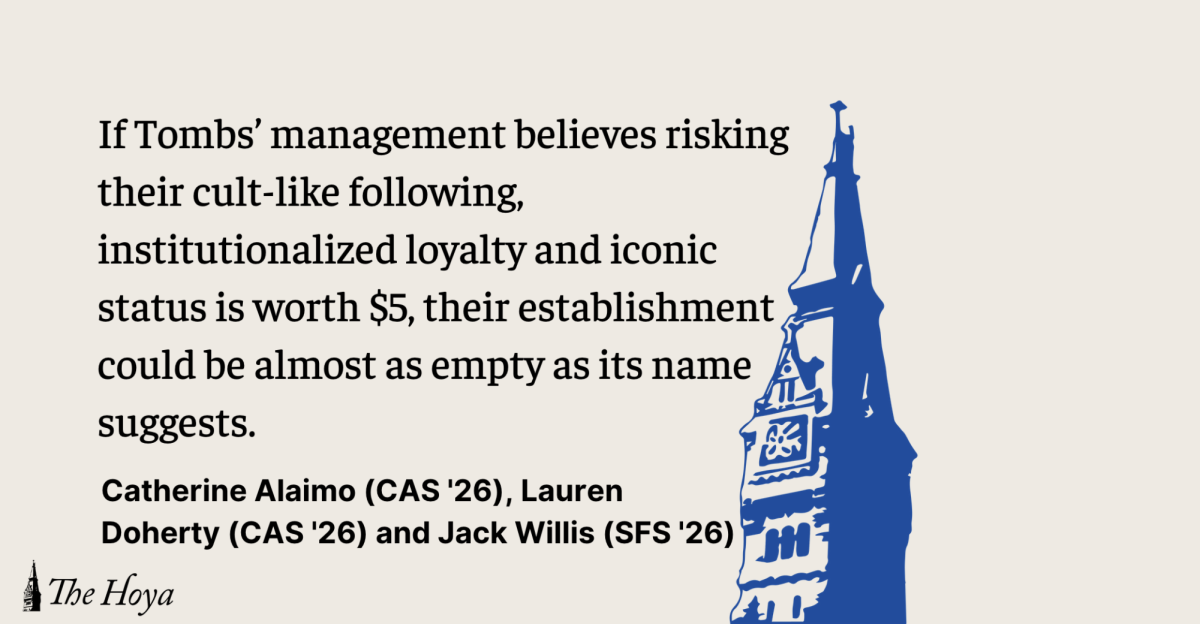On April 14, Georgetown University students will vote on a measure titled “An ACT OF REFERENDUM to Establish Transparency Regarding Investments Made by the University AND Demand Georgetown Uphold Its Socially Responsible Investing Policy by Divesting from Companies Engaged in Human Rights Violations.”
One only needs to read past the title to discover that this referendum expresses concern not with Georgetown’s potential ties to human rights violations but with Georgetown’s ties to any facet of the State of Israel, including Israeli institutions like Tel Aviv University.
Though I personally disagree with many characterizations of Israel this referendum presents, this is not why I oppose it. Rather, I oppose it for applying a double standard to Israel, stifling academic freedom and contradicting Georgetown’s academic mission. Concerningly, the Georgetown University Student Association (GUSA) Senate railroaded the referendum through without proper procedure, departing from standard practice in using an anonymous vote. For these reasons, I urge all of you to vote against this referendum this Monday.
If the referendum truly concerned itself with human rights, why does it not also demand Georgetown end relations with Chinese institutions, such as Tsinghua University, when the Chinese Communist Party has been accused of human rights violations? Why not mention Georgetown’s campus in Qatar, which has also seen reports of gross human rights violations? Despite the accusations against both, I do not demand Georgetown cut ties with institutions in either nation. A country’s people and its academic institutions must not be conflated with its government. In the same vein, Israeli institutions are not accountable for their government’s actions.
One partnership Georgetown upholds with Israeli universities is the annual Goldman Visiting Professor, in which a professor from an Israeli university spends a year at Georgetown. Meir Litvak, who currently fills the position, is a professor at Tel Aviv University, the main institution singled out by the referendum. Professor Litvak has been quoted in The New York Times criticizing Prime Minister Netanyahu for anti-Palestinian remarks, calling them “a disgrace.” By cutting Georgetown’s ties with Israel, students would lose access to the diverse array of opinions that exist in Israel (such as Professor Litvak’s), depriving themselves of a nuanced understanding of Israel and the broader conflict.
Ultimately, this academic boycott creates a dangerous precedent. Where would it stop? Would we end our partnership with the Parents Circle-Families Forum (PCFF) next, which brings together Israelis and Palestinians grieving losses, simply for involving Israelis?
As Georgetown students, we should welcome, and not shy away, from difficult conversations. Even if you vehemently oppose the current war or any Israeli policy, this referendum is not the appropriate way forward. Instead, embrace the opportunity to study all sides of the tragedy of this conflict, and use that knowledge to advance dialogue on how to build a better future.
Furthermore, procedure was not properly followed with regards to passing this measure, leading several GUSA senators to oppose the vote. According to The Hoya, “senators voted to break GUSA rules to advance the referendum without the approval of the senate’s Policy and Advocacy Committee (PAC), which determines whether to send legislation before the full senate.” The article goes on to quote senators expressing their concerns, including the “secretive” process, procedural rule breaking and opinion that GUSA should not be involved in politics. Voting “yes” means the student body accepts this disregard for proper procedure and sets a worrying precedent for how GUSA may operate in the future. Voting “no” holds GUSA accountable to continue following procedural norms regardless of agenda.
Beyond process, maintaining academic discourse sits at the core of Georgetown’s mission. To accomplish this mission, Georgetown must be apolitical as an institution. Georgetown offers students diverse professors and viewpoints from which they can learn, creating their own opinions and improving the world. Georgetown has educated some of the United States’ most prominent politicians on both sides of the aisle, including both the current majority and minority whips of the U.S Senate.
I support making a personal choice to boycott Israel or any institution, even if I disagree. However, making that choice for other students by attempting to change university policy is wrong. This referendum does not express the views of individual student organizations or students. By demanding the entire university divest from affiliation with Israel, the student body would state we no longer wish to maintain the impartiality which gives Georgetown its legitimacy as a world-class institution. To avoid imposing a double standard, continue our tradition of academic discourse, hold GUSA accountable and uphold Georgetown’s mission, I will vote no on April 14. I hope you do too.
Jacob Callahan is a junior in the School of Foreign Service.



